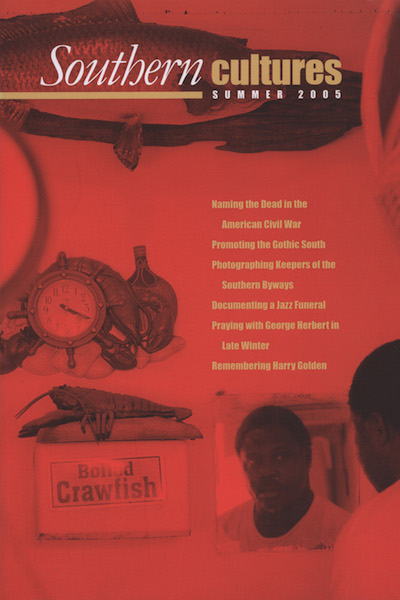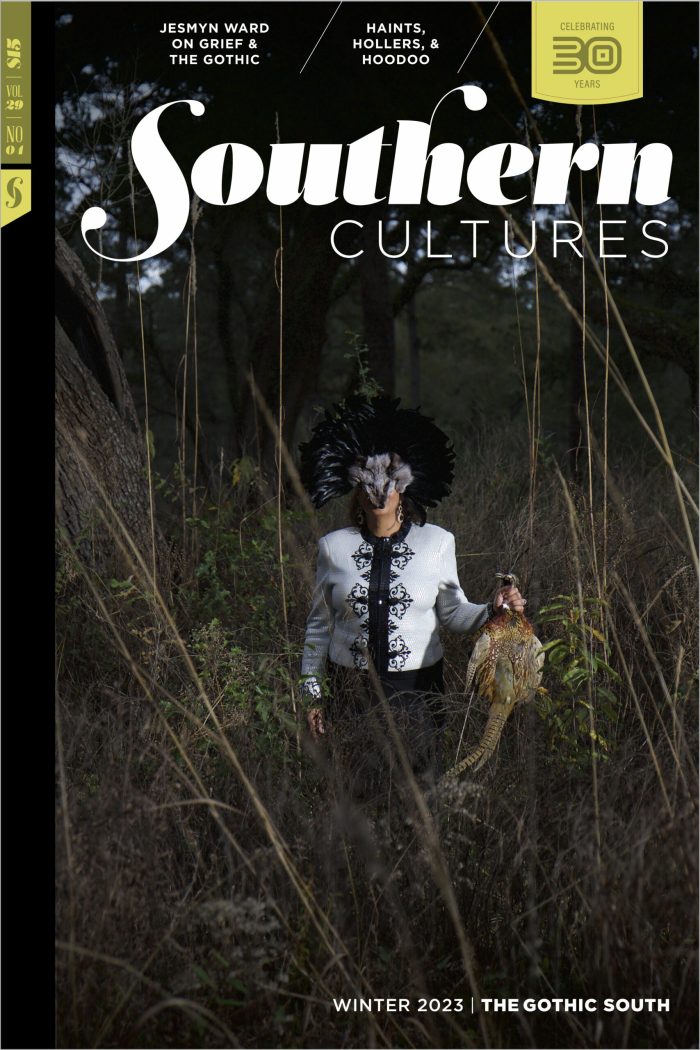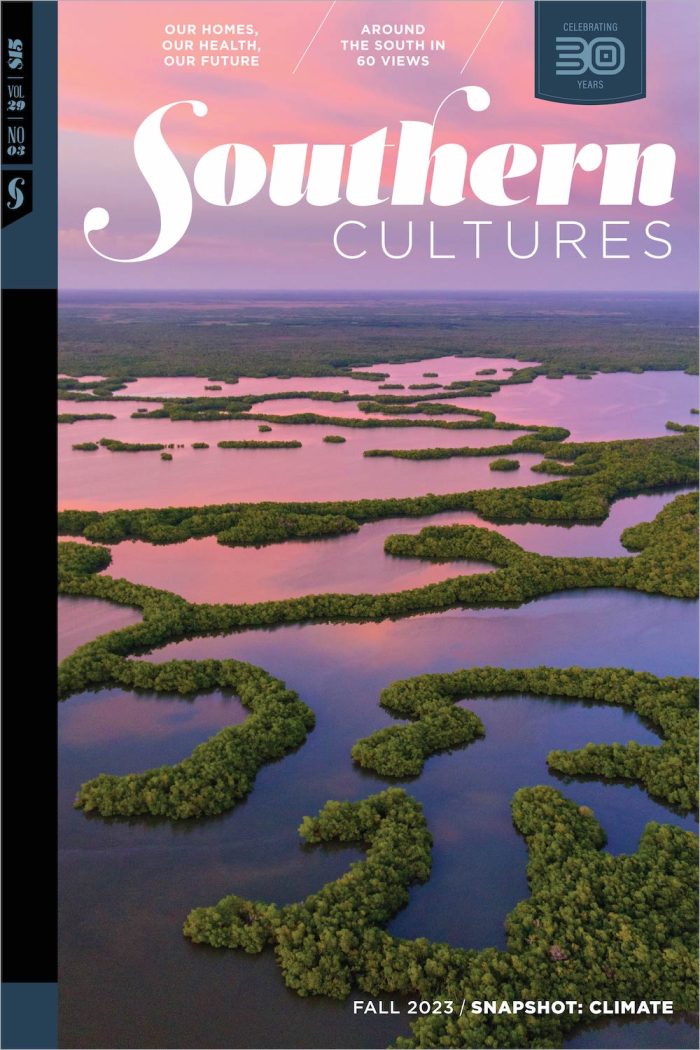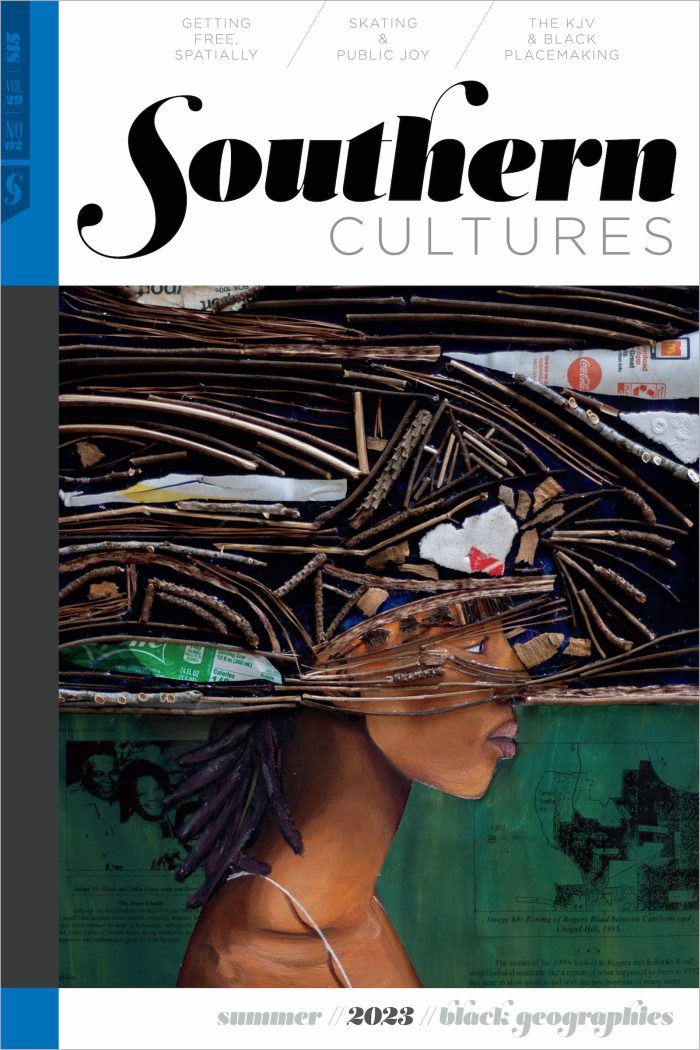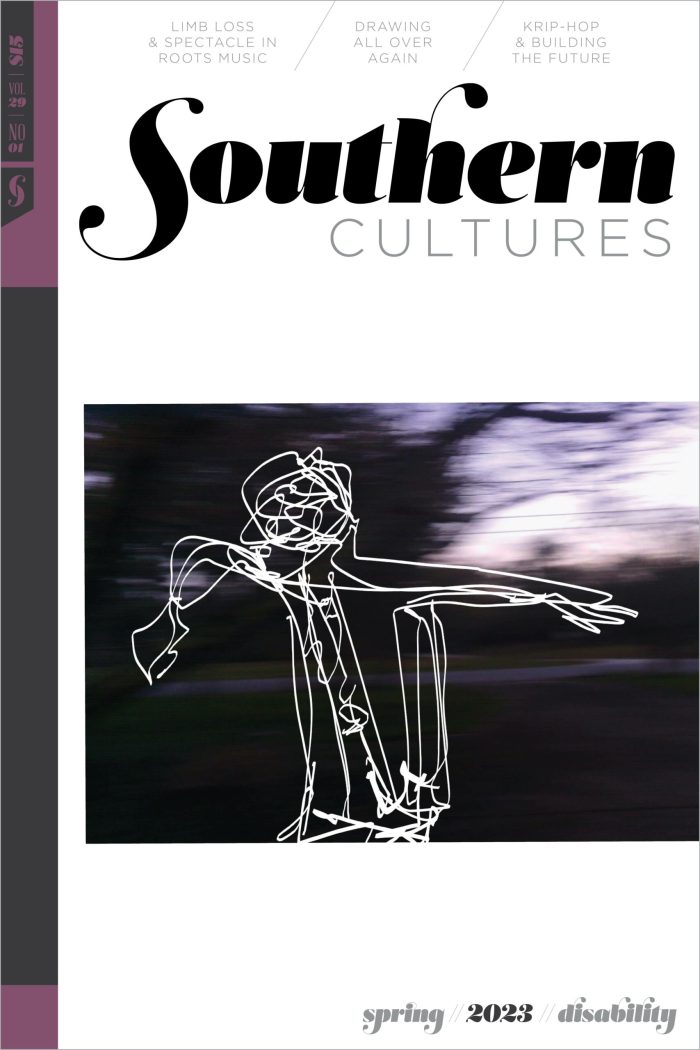BUY ACCESS
by Harry L. Watson
“The chances for great deeds are not limited to the dead. As often with a wisecrack as a bugle, they call us from the present life as well.” In some circles, the Confederate dead get short shrift these days, when they get remembered at all. It was not always thus. Once upon a time, the »
BUY ACCESS
by Drew Gilpin Faust
“More Americans died in the Civil War than in all other American wars combined up to Vietnam. Death touched nearly every American, north and south, of the Civil War era, yet the unanticipated scale of the destruction meant that at least half these dead remained unidentified.” We take for granted the obligation of our government »
BUY ACCESS
by Rebecca C. McIntyre
“Taking a boat ride down a swampy southern river was a thrilling escape into the unknown, a peep show of the grotesque, a blending of the realistic and the fantastic, which thrilled in a strange and disturbing way.” In the early spring of 1870, journalist Thomas Bangs Thorpe traveled to Florida’s Ocklawaha River to gather »
BUY ACCESS
by Brian Jolley
“The greatest influence on these portraits came in the form of Charles Kuralt, the late journalist who humbly traveled the road and made all those he met heroic.” Brian Jolley describes himself not as a travel photographer but as “a photographer who travels.” For years, maps have held a certain fascination for Jolley, with their »
Poetry
by Tom Andrews
1In fits and starts, Lord, our words workthe other side of language where you lie if you can be said to lie. Mercy uponthe priest who calls on you to nurture and to terrorize him, for you oblige.Mercy upon you, breath’s engine returning what is to what is. Outside, light swarmsand particularizes the snow; tree limbs crack with ice and »
BUY ACCESS
by Peter A. Coclanis,
Angelo P. Coclanis
“On a sweaty Saturday morning in late October 2004, a jazz funeral was held in New Orleans. Lloyd Washington had performed off and on in the postwar period in one of the many groups known as the Ink Spots that grew out of the original 1930s group of that name.” No southern city—indeed, few cities »
BUY ACCESS
by Tom Hanchett
“‘I have a positive cure for this mental aberration called anti-Semitism. I believe that if we gave each anti-Semite an onion roll with lox and cream cheese, some chopped chicken liver with a nice radish, and a good piece of brisket of beef with a few potato pancakes, he’d soon give up all this nonsense.'” »
BUY ACCESS
by Lee Ann Brown
“For each and every one of us, a rainbow is the prize.” Civil Rights was brewing in a Charlotte coffee shop,At an orange juice bar called Tanner’sdown near the main bus stop.Cross of Trade & Tyron where the Cherokee once hunt,Harry Golden cast his shining eye on a way to make his point.
BUY ACCESS
by John M. Coski
University of South Carolina Press, 2004 Following in the time-honored tradition of Thomas Wolfe and Willie Morris, South Carolina native K. Michael Prince writes about the South from a self-imposed exile. In Prince’s case, the exile is to Munich, Germany, where he is a free-lance writer and translator. His perspective on the South is typically »
BUY ACCESS
by Paul D. H. Quigley
University of North Carolina Press, 2004 At one time more than a few eyebrows would have been raised at the idea of an intellectual history of the Old South stretching into a second volume. (And we are not talking about an unportly second volume here.) The Old South used to be seen as a place »
BUY ACCESS
by Michael Montgomery
University of Georgia Press, 2004 One would scarcely know it today from film and television representations (and rarely from the dialogue of published fiction), but the English of the American South is, and has always been, less uniform geographically and socially than that of any other region of the country. The region’s settlement by varied »
BUY ACCESS
by William S. Price
University of North Carolina Press, 1996, 1999, 2003 Among the pieces of progressive legislation that marked the early years of Lyndon Johnson’s presidency was the National Historic Preservation Act of 1966. One of its key provisions authorized the Secretary of the Interior “to expand and maintain a national register of districts, sites, buildings, structures, and »
